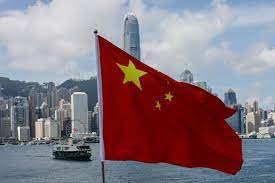$MP $LAC $REMX
#RareEarth #China #Minerals #EV #SupplyChain #Recycling #CleanEnergy #Mining #Investment #Commodities #Tech #BatteryMetals
China has long dominated the global supply of rare earth minerals, holding a near-monopoly on their extraction, processing, and export. These elements are essential components in high-tech industries, particularly in the production of electric vehicles (EVs), wind turbines, and defense technologies. However, a growing number of start-ups are now working to challenge Beijing’s grip on these critical materials by focusing on an alternative source: recycling electronic waste. With geopolitical tensions rising and governments seeking to secure domestic supply chains, companies in North America and Europe are ramping up investments in sustainable methods to recover rare earth elements from discarded batteries, old electronics, and industrial waste. By reducing reliance on traditional mining operations based in China, these firms aim to create a more resilient and environmentally sustainable supply of these crucial materials.
Recycling rare earth minerals presents both significant opportunities and financial challenges. Compared to conventional mining, which involves high energy consumption, environmental damage, and geopolitical dependencies, recovering rare earths from electronic waste could offer cost efficiencies and lower ecological impact. Start-ups such as Canada’s ReElement Technologies and the U.S.-based Urban Mining Company are spearheading efforts in this space, investing in refining processes that extract neodymium, dysprosium, and other rare elements from used magnets and electronic components. Investors are closely watching these developments, as capital inflows into sustainable mineral recovery solutions could disrupt the rare earths market, where China currently holds over 60% of global production. This paradigm shift could significantly benefit companies engaged in rare earth recycling, with potential investment opportunities in specialty ETFs such as $REMX, or individual mining firms like MP Materials ($MP) and Lithium Americas ($LAC), which are also expanding their rare earth operations.
Market analysts suggest that the scaling of rare earth recycling technology could alleviate price volatility in the sector, which is often influenced by Chinese policies and export restrictions. Over the past decade, the rare earth market has experienced sharp fluctuations, largely driven by supply concerns and geopolitical maneuvering. For example, in 2010, China briefly cut exports, causing a surge in prices for neodymium and other materials critical to high-tech manufacturing. If start-ups succeed in creating a viable alternative supply chain through recycling, companies dependent on these materials, such as electric vehicle manufacturers and semiconductor producers, could see more stable costs, boosting long-term profitability. This could, in turn, lead to increased investor confidence in Western rare earth initiatives, shifting market dynamics away from China’s control.
Governments in the U.S. and Europe are actively supporting these initiatives, with policy measures such as tax incentives, research grants, and strategic partnerships aimed at reducing dependency on Chinese rare earth supply. The Biden administration, for example, has designated rare earth production as an area of national security interest, while the European Union is advancing circular economy policies to enhance metal recovery. With global demand for EVs and clean energy technology projected to surge, the development of independent and sustainable rare earth supply chains could have widespread economic implications. If successful, the emerging rare earth recycling industry may not only mitigate supply risks but also offer attractive investment opportunities, reshaping the future of the sector and diversifying the global market for these vital materials.











Comments are closed.